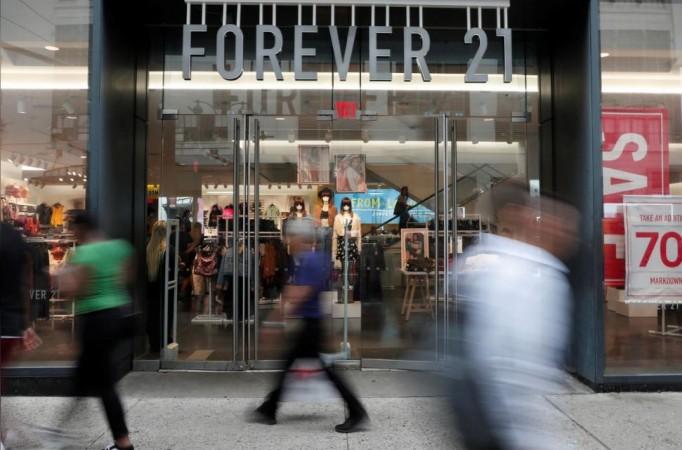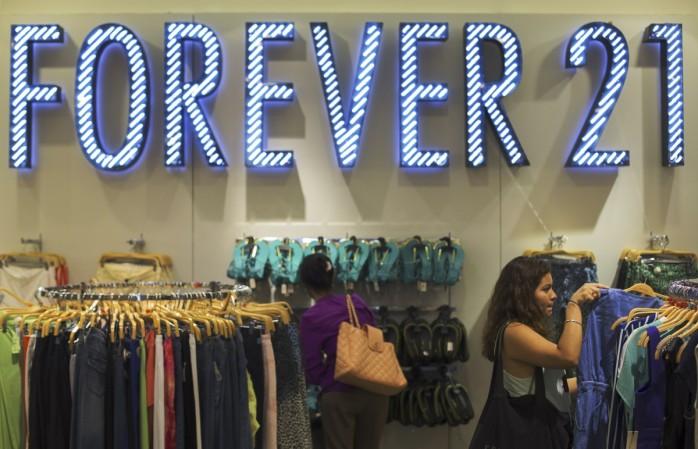
Fast fashion chain Forever 21 filed for voluntary bankruptcy after the retail giant failed to keep up with heavy competition and growing shift of consumers opting for e-commerce.
The decision of closing around 350 stores worldwide, including 178 stores in its home market - the United States, comes after months of speculations.
The firm stated that the filing of Chapter 11 for bankruptcy protection is a "deliberate and decisive step to put us on a successful track for the future". The company will close its operations in Europe and Asia but it will continue the running of its websites and some hundred stores in the United States, Mexico and Latin America.
"What we're hoping to do with this process is just to simplify things so we can get back to doing what we do best," Forever 21's executive vice president Linda Chang was quoted as saying to the New York Times.
Often called as "reorganisation" bankruptcy, it allows companies to retain their control on the firm and continue its operations while firms pay back to its creditors and restructure the business.
Forever 21 has received $275 million from JPMorgan Chase & Co and $75 million from TPG Sixth Street Partners and its affiliated funds.
"The financing provided by JPMorgan and TPG Sixth Street Partners will arm Forever 21 with the capital necessary to effect critical changes in the U.S. and abroad to revitalize our brand and fuel our growth, allowing us to meet our ongoing obligations to customers, vendors and employees," Chang was quoted as saying by Bloomberg.
The retail company was founded by Chang's parents, Do Won and Jin Sook Chang in 1980s after they migrated to the US from South Korea. The company has seen ubiquitous success in the US since the early 2000s for selling clothes catering to teenage fashion at cheap prices.

Despite the fashion company expanded to 47 countries within six years, Chang stated that the consumer's shifting preference to online shopping over the traditional retail industry has softened mall traffic.
Even after the clothing company expanded to menswear and footwear after the 2008 crash, the shifting consumer preference to e-commerce made the company make up 16 per cent of its sales and a drop in revenue from 4.4 billion in 2016 to 3.3 billion last year, according to NYT.
The company stated that after the closedown of stores and its focus on online operations is expected to bring $2.5 billion in annual sales.
While fierce competition by brands such as H&M and Zara has played a significant role in closing down of Forever 21 shops and cutdown of 10,200 employees since 2016, experts cite a variety of reasons behind the giant's decline.
The company's brand image of 'fast-fashion' which basically means disposable cheap $10 dollar clothing items has also become unpopular among its target 20-40 age group due to the awareness of various issues according to experts. The brand had not addressed the new age concerns of the consumers regarding the impact of fast-fashion on the environment and working rights of those making the products in developing countries.
Recently, American pop star Ariana Grande sued the company for $10 million for illegally using her trademark style used in her "7 rings" music video for their promotions, including ads featuring a "look-alike model."









